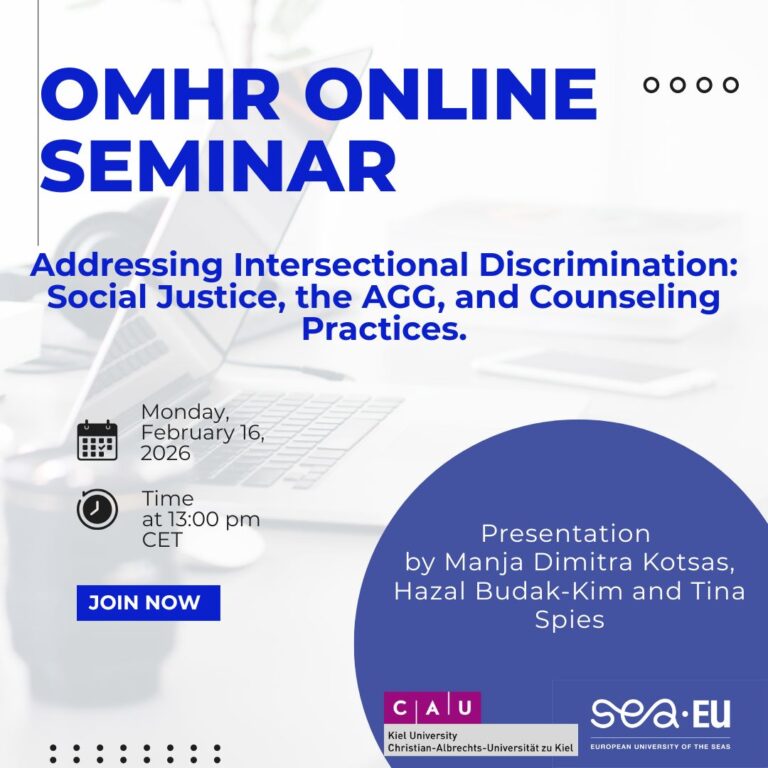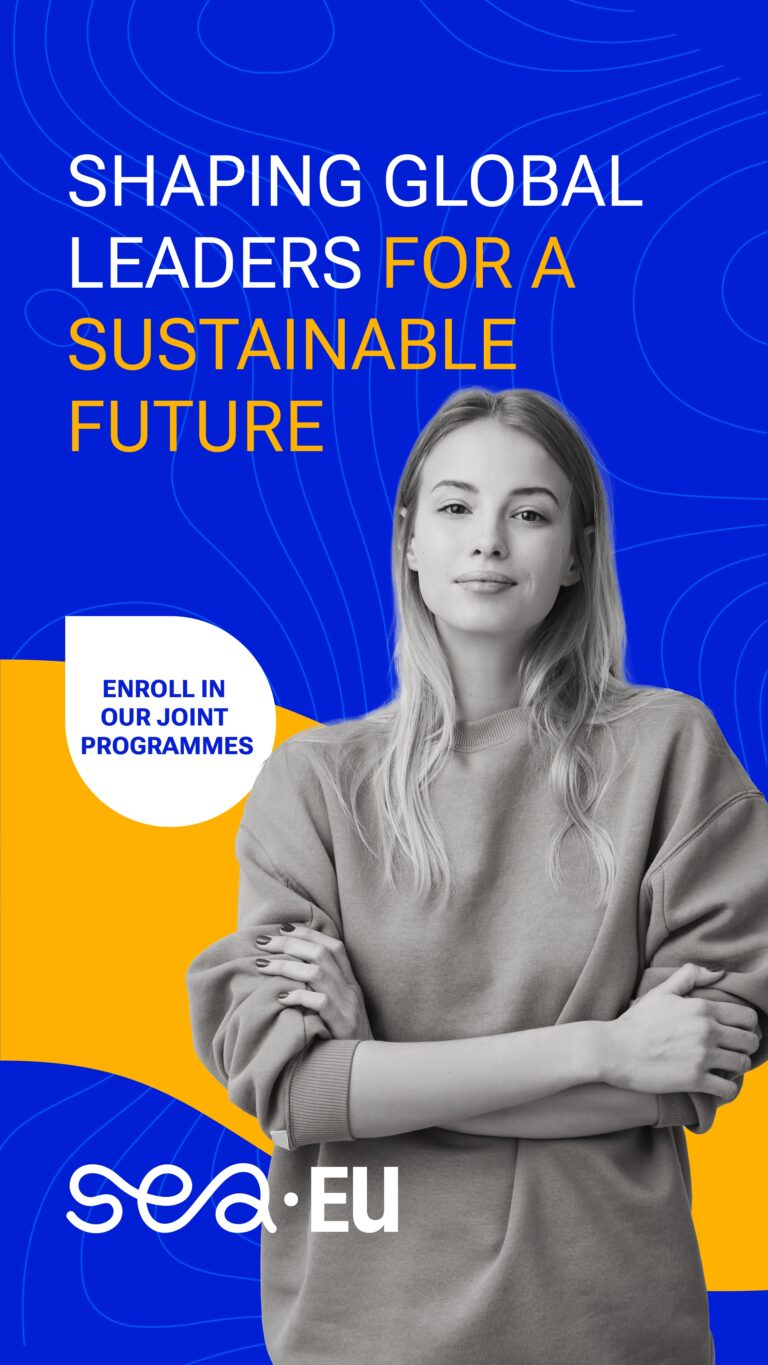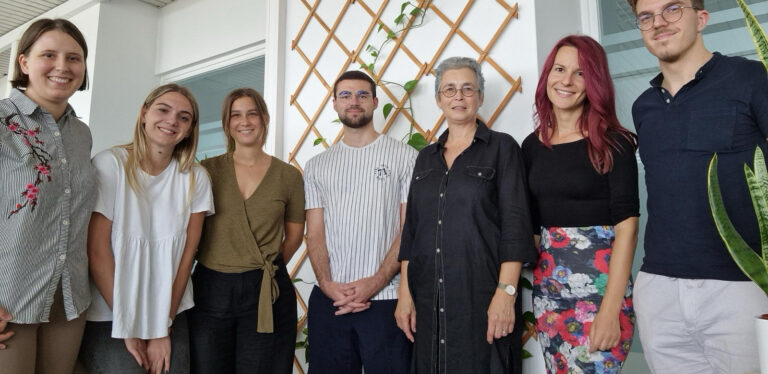As part of the SEA-EU Alliance’s science communication efforts (Task 6.3, WP6), the University of Algarve (UAlg) presents Science, Art, Society 2.0, an interdisciplinary exhibition on display at the University Library (Gambelas Campus) until 11 July 2025.
The exhibition explores the theme of rare diseases through a creative collaboration between students from the Visual Arts degree programme and researchers from the Algarve Biomedical Center Research Institute (ABC-Ri). Using recycled laboratory materials, the artists have transformed scientific data, tools, and concepts into powerful visual narratives that foster public engagement and empathy.
Originally conceived to mark Rare Disease Day (28 February), Science, Art, Society 2.0 began with the creation of a single artwork to be donated to RD-Portugal, the National Federation of Rare Disease Associations. It quickly evolved into a broader initiative, reflecting shared research interests at ABC-Ri: Sara Carvalhal’s work on chromosomal segregation and microcephaly, and Clévio Nóbrega’s research on the molecular mechanisms of rare neurodegenerative diseases.
The exhibition is organised around three central initiatives. In“From Science to Art for Society”, artist Carolina Ramos Pereira created a piece that symbolises the translation of scientific knowledge into an accessible artistic message.
In“From Society to Science through Art”, artist Lívia Santos Furtado contributed a work to support a crowdfunding campaign for rare disease research at ABC-Ri.
The third initiative, “From Science, Through Society, to Art”, features a work by artist Jagna Arcipowska that acknowledges the generosity of private donors and philanthropic support for rare disease research. In 2023, Dr Clévio Nóbrega, principal investigator at ABC-Ri, was awarded a €1 million project grant by the Viljem Julijan Association for Children with Rare Diseases— a Slovenian non-profit organisation— to develop a gene therapy for a rare disease. This artwork expresses gratitude for that support and reflects the social impact of scientific research made possible through transnational solidarity.
These initiatives highlight how art can engage the public, mobilise solidarity, and encourage participation in scientific progress.
The project also aligns with the sustainability goals of the ABC-Ri Green Group, promoting the creative reuse of scientific materials. In July, the initiative will continue with a workshop for local schoolchildren, combining science, art, and education in a gesture of inclusion and awareness.
Significantly, the exhibition coincided with Rare Disease Day being held outside the Lisbon region for the first time—hosted by the University of Algarve—reinforcing the importance of decentralised and inclusive public engagement with science.
Science, Art, Society 2.0 demonstrates how interdisciplinary collaboration can make complex research more accessible and socially relevant. It highlights the role of art in science communication and the potential of creativity to raise awareness and inspire collective action.
The exhibition is jointly organised by ABC-Ri (Sara Carvalhal and Clévio Nóbrega), AD-ABC (Isa Mestre), and the Faculty of Human and Social Sciences of UAlg (Sara Navarro).
All members of the university and the wider community are warmly invited to visit and experience this unique dialogue between science, art, and society.



